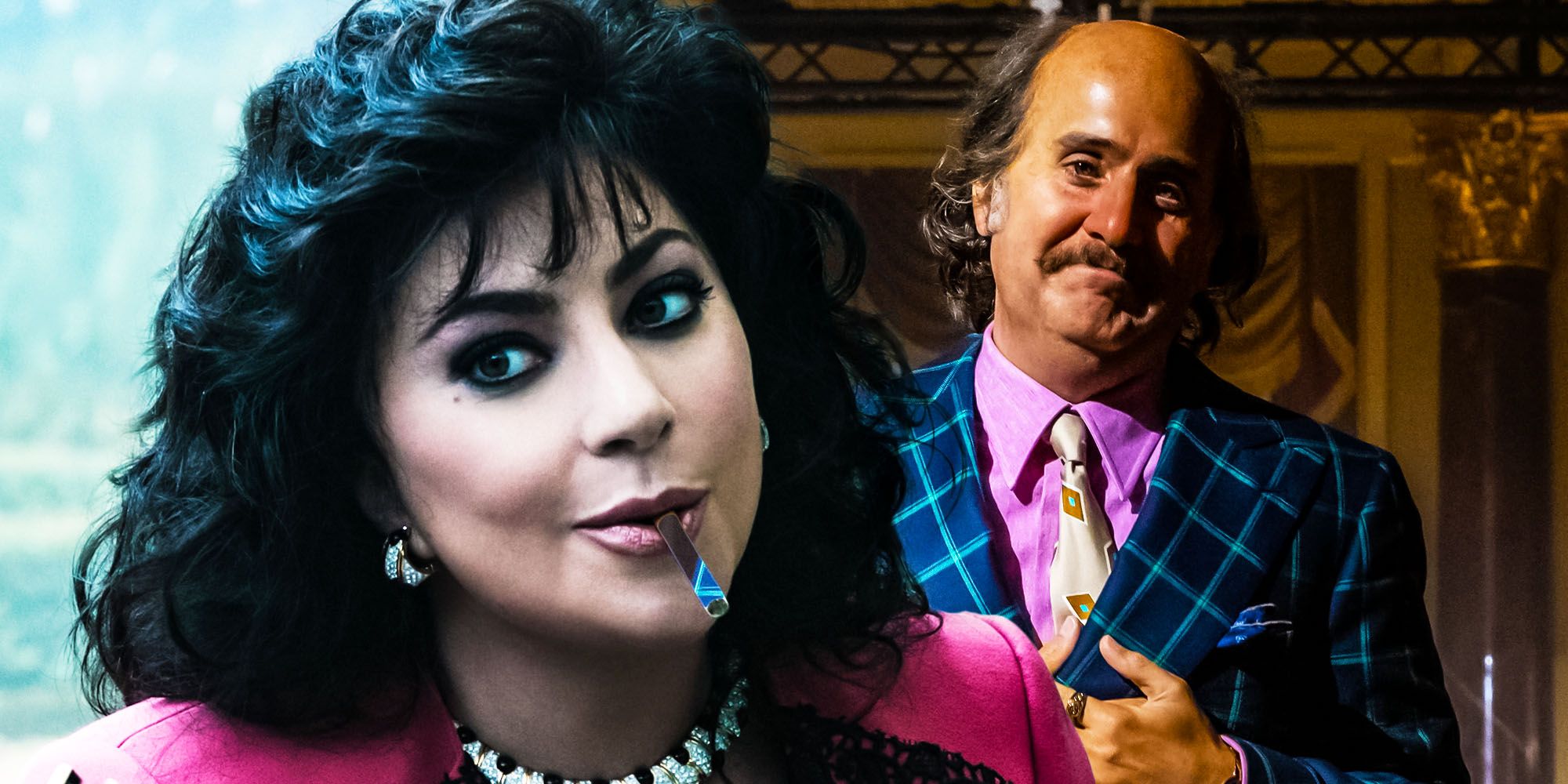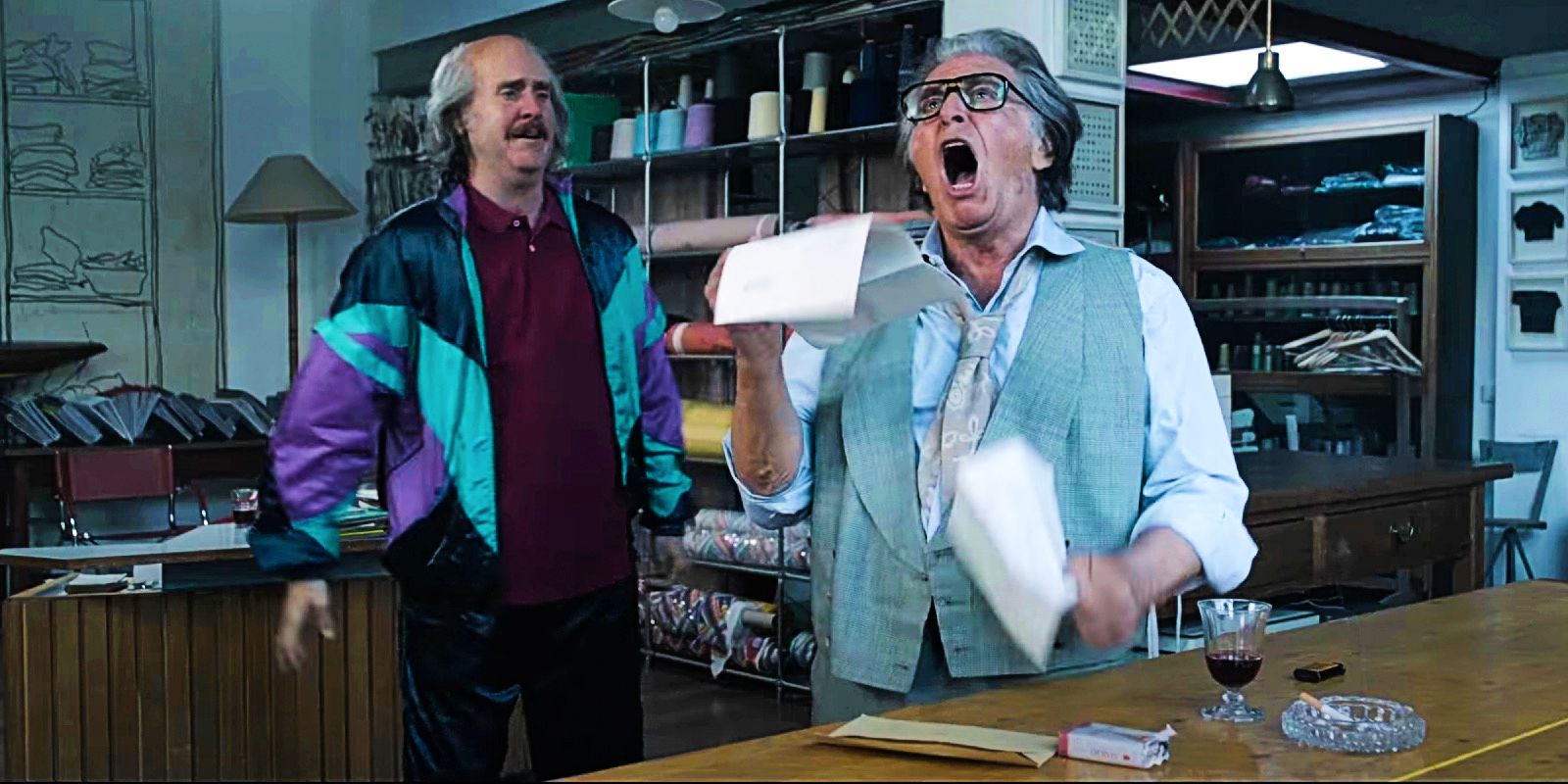While many characters in House of Gucci feel balanced between serious and comedic, Jared Leto's portrayal of Paolo Gucci comes across as a joke that doesn't work and goes too far. House of Gucci is the dramatization of the events leading to the downfall of the Gucci family in 1995. It centers around Patrizia Reggiani (Lady Gaga) and her marriage to the sometimes flippant heir of the Gucci throne, Maurizio Gucci (Adam Driver). Patrizia, becoming hungry for power, plots to ensure Maurizio and her inherit the Gucci brand from the family.
The large Gucci family is included in the dramatization, including Jared Leto's character Paolo Gucci, whose poor designs and flamboyant nature isolate him from the rest of the family. Throughout the movie, Paolo is depicted as the black sheep, dumber and more naive than the rest of the family. A lot of Paolo's scenes—and there are a lot of them—are played for comedic relief. Unfortunately, it's Leto's role that puts House of Gucci over the top.
Paolo's character is ultimately not important enough to have as much screen time as he does. The controversial Ridley Scott movie already comes in at a run time of 2 hours and 37 minutes, and this avant-garde drama drags its feet through the whole runtime. With already apparent pacing problems, every unnecessary thing should be cut from the film, but instead, Paolo's extraneous storyline is heavily featured. He's only necessary to establish and execute Patrizia and Maurizio's betrayal of Aldo Gucci, but he's favored over other minor characters, making appearances in many scenes—sometimes without either of the main characters. It makes the movie feel much longer than it needs to be.
Paolo has so much screen time because he's seen as comedic relief, but the movie's tone doesn't need the help. The movie flip-flops back and forth between a drama that takes itself seriously and a campy, avant-garde dramatization of the Gucci family. House of Gucci's campy references break the tension of the drama enough to keep the movie watchable without giving the audience tonal whiplash. However, the addition of Paolo feels like a departure from the drama of the original story. His character is played for comedy, but with a story that's already so carefully tonally balanced, the comedy isn't needed and makes it seem like the movie can't decide what it wants to be. In some intensely dramatic scenes, like Aldo signing over his half of the Gucci fortune, Paolo undermines the tension the audience is supposed to feel.
Paolo's wants and eccentricities are played for laughs, but they're the weakest jokes of the movie. His lack of design skills given his lineage is supposed to be funny, but it pales in comparison to scenes like those between Lady Gaga's Patrizia Reggiani and TV psychic Pina (Salma Hayek), where the movie's time would have been better spent. At best, the storyline about his pastel and brown designs are a joking nod at what Gucci is known for today, but at worst, it's an unfunny joke that the movie repeatedly brings up to try to keep the audience engaged. Unfortunately, his character makes House of Gucci feel too over the top to really enjoy.


